Satellite crash – live: Out-of-control ERS-2 falls to Earth

Your support helps us to tell the story
From reproductive rights to climate change to Big Tech, The Independent is on the ground when the story is developing. Whether it's investigating the financials of Elon Musk's pro-Trump PAC or producing our latest documentary, 'The A Word', which shines a light on the American women fighting for reproductive rights, we know how important it is to parse out the facts from the messaging.
At such a critical moment in US history, we need reporters on the ground. Your donation allows us to keep sending journalists to speak to both sides of the story.
The Independent is trusted by Americans across the entire political spectrum. And unlike many other quality news outlets, we choose not to lock Americans out of our reporting and analysis with paywalls. We believe quality journalism should be available to everyone, paid for by those who can afford it.
Your support makes all the difference.An out-of-control satellite has fallen to Earth, nearly three decades after it launched.
The ERS-2 satellite, which served as an observation platform after launching in 1995, landed in the Pacific Ocean between Alaska and Hawaii on Wednesday.
The European Space Agency (ESA) said the risks associated with the two-tonne satellite were “very low”, however there was still a chance that fragments could hit populated areas.
Mirko Albani from ESA’s Earth Observation Ground Segment Department said: “It’s worth highlighting that none of the elements that might re-enter the atmosphere (and reach the surface) are radioactive or toxic.”
The predicted time for the satellite entering the Earth’s atmosphere was originally 3.49pm GMT (10.49 EST) on Wednesday, however it remained orbiting the planet for up to an hour.
You can follow all the latest news, updates and developments of the ERS-2 satellite as it heads towards Earth in our live blog below.
Satellite crash live: ESA gives new prediction for reentry site
We’ve just had an update from the European Space Agency. The latest prediction puts the ERS-2 satellite coming down north of Norway, however there is still a broad window of uncertainty that could see it coming down anywhere from Africa to North America.
Satellite crash live: ERS-2 heads over Europe
The latest tracking data from Satflare shows the ERS-2 satellite crossing the Mediterranean and over Greece.
It will now head over the Balkans before heading over Central Europe and then into Scandinavia.
This could be a dangerous moment should it come down now, although the odds of anyone being injured by falling fragments remains incredibly low, even over land.
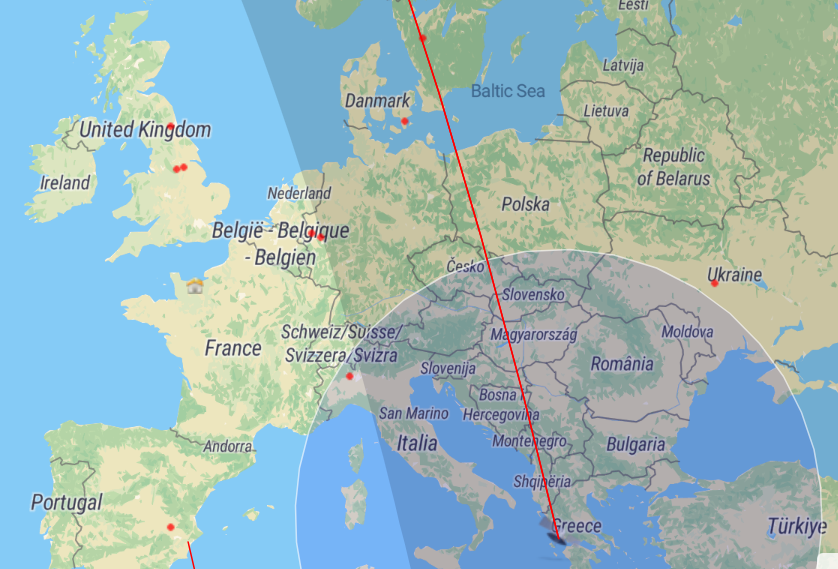
Satellite crash live: ESA revises predicted reentry time
The European Space Agency’s revised time for the ERS-2 satellite’s reentry is 5.04pm GMT, which is in approximately five minutes. There is still a 30 minute window of uncertainty though.
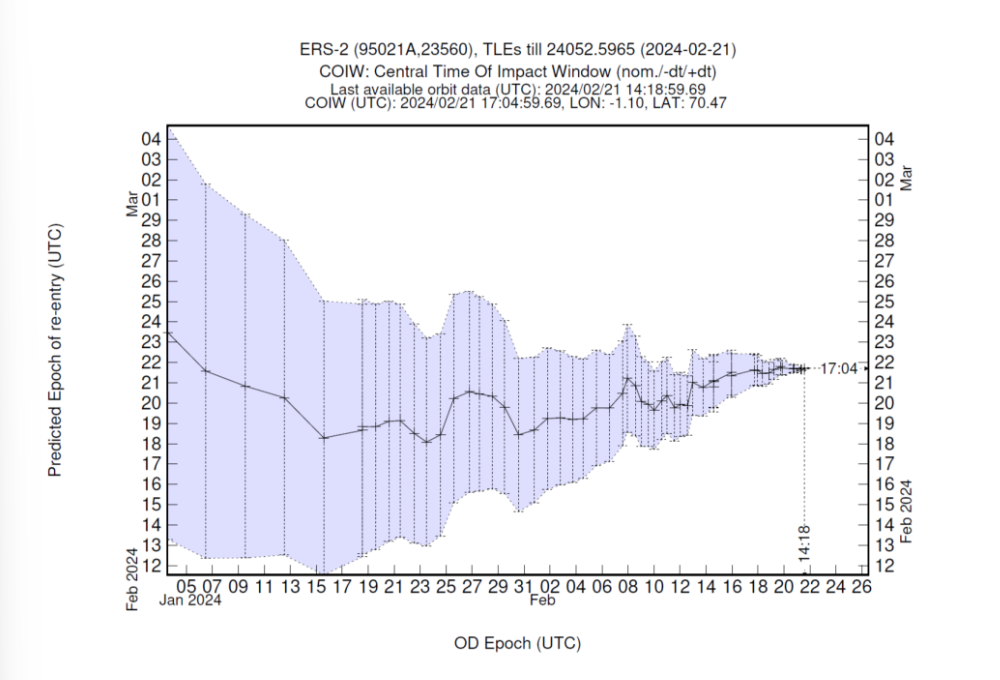
Satellite crash live: ERS-2 heading for North America
The latest tracking data from Satflare shows the ERS-2 satellite passing over Greenland and heading towards northern Canada.
If it continues it will briefly pass over Alaska before heading out over the Pacific Ocean. After that it won’t hit land again until the Antarctic.
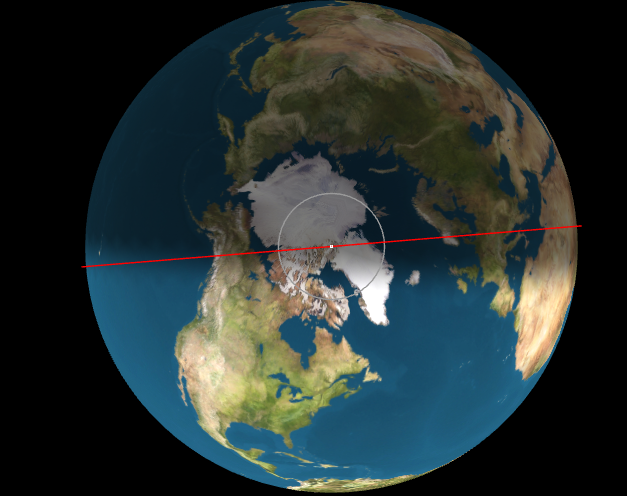
Satellite crash live: Trajectory of ERS-2 looks relatively safe
It looks increasingly likely that the ERS-2 satellite will avoid reentering the Earth’s atmosphere over any populated areas.
There’s just this slice of North America before a vast swath of the Pacific Ocean to cross.
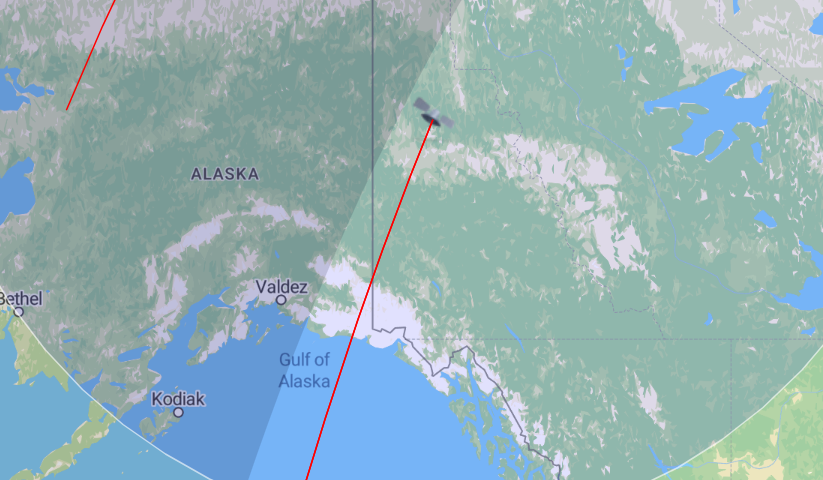
Having written that, I’ve just spotted that it’s on course for heading right over Hawaii.
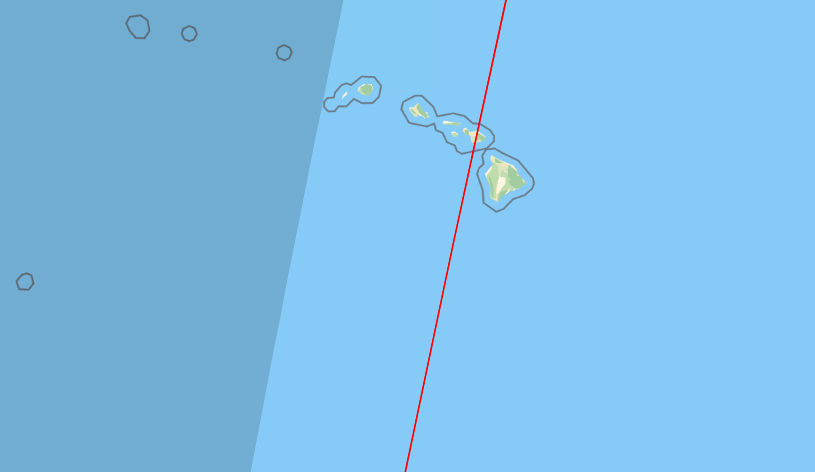
Satellite crash live: ERS-2 clears Hawaii
The ERS-2 satellite has cleared Hawaii, according to the Satflare tracker. There’s a vast expanse of Pacific Ocean before it hits land again, though its reentry is now way overdue.

Satellite crash live: ERS-2 passes New Zealand
The ERS-2 is currently passing New Zealand. Next stop Antarctica, before another stretch of ocean and back to Africa.
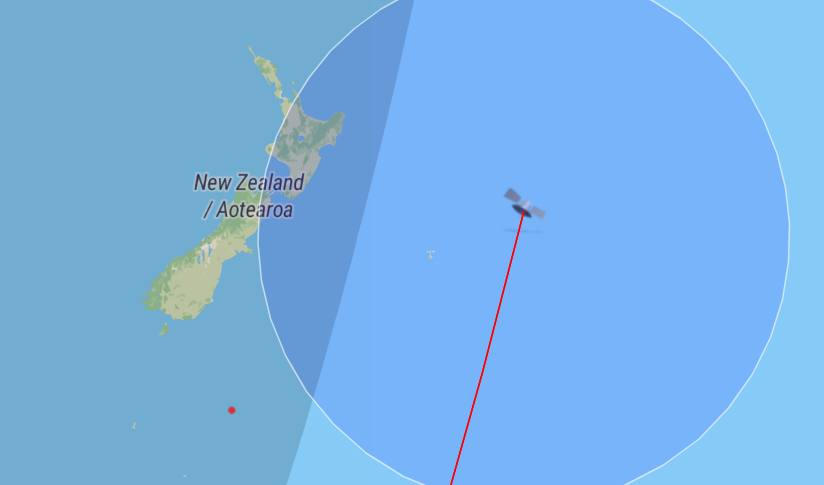
Satellite crash live: ERS-2 clears Antarctica, heads towards Africa
The ERS-2 is now nearly an hour past the predicted reentry time, which the European Space Agency set at 5.04pm.
The third-party satellite tracker Satflare shows that it has cleared Antarctica and is now heading over the Southern Ocean.
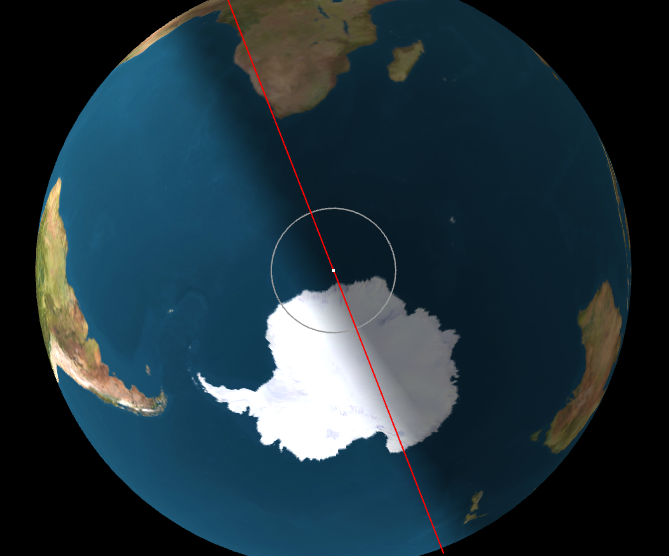
Satellite crash live: ERS-2 ‘may have reentered'
The European Space Agency says the ERS-2 satellite may have already reentered the Earth’s atmosphere, but has no confirmation.
“We have now reached the end of the final reentry window. We have received no new observations of ERS-2,” the space agency posted on X (formerly Twitter).
“This may mean that the satellite has already reentered, but we are waiting for information from our partners before we can confirm. Stay tuned.”
Satellite crash live: Still no news on fate of ERS-2
We’re still waiting to hear from the European Space Agency to know whether the ERS-2 satellite has officially deorbited.
If it is somehow still in orbit, it will be heading over the north of Africa before skirting by the west of Europe. These projections are not official, and the ESA has already said it has likely reentered the Earth’s atmosphere already - we just don’t know where.
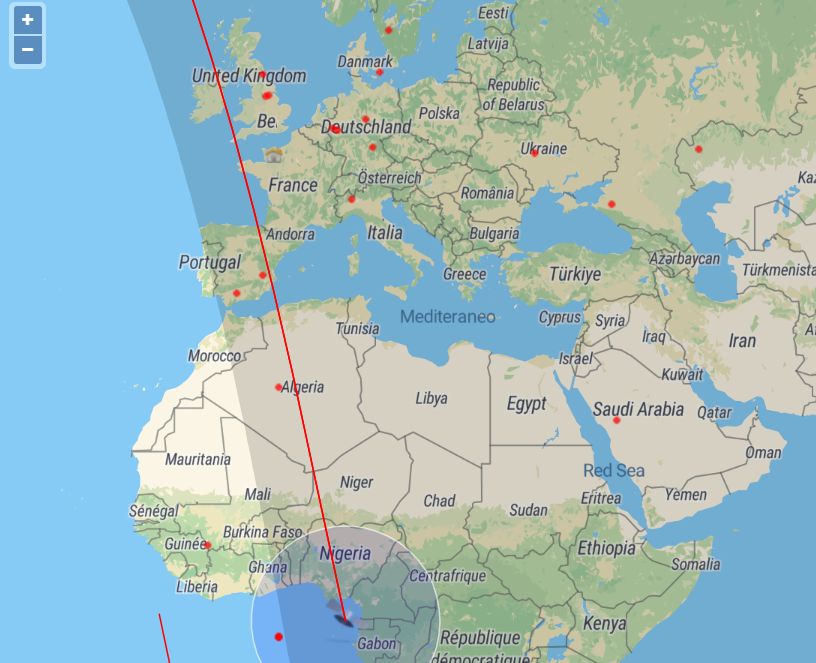
Join our commenting forum
Join thought-provoking conversations, follow other Independent readers and see their replies
Comments